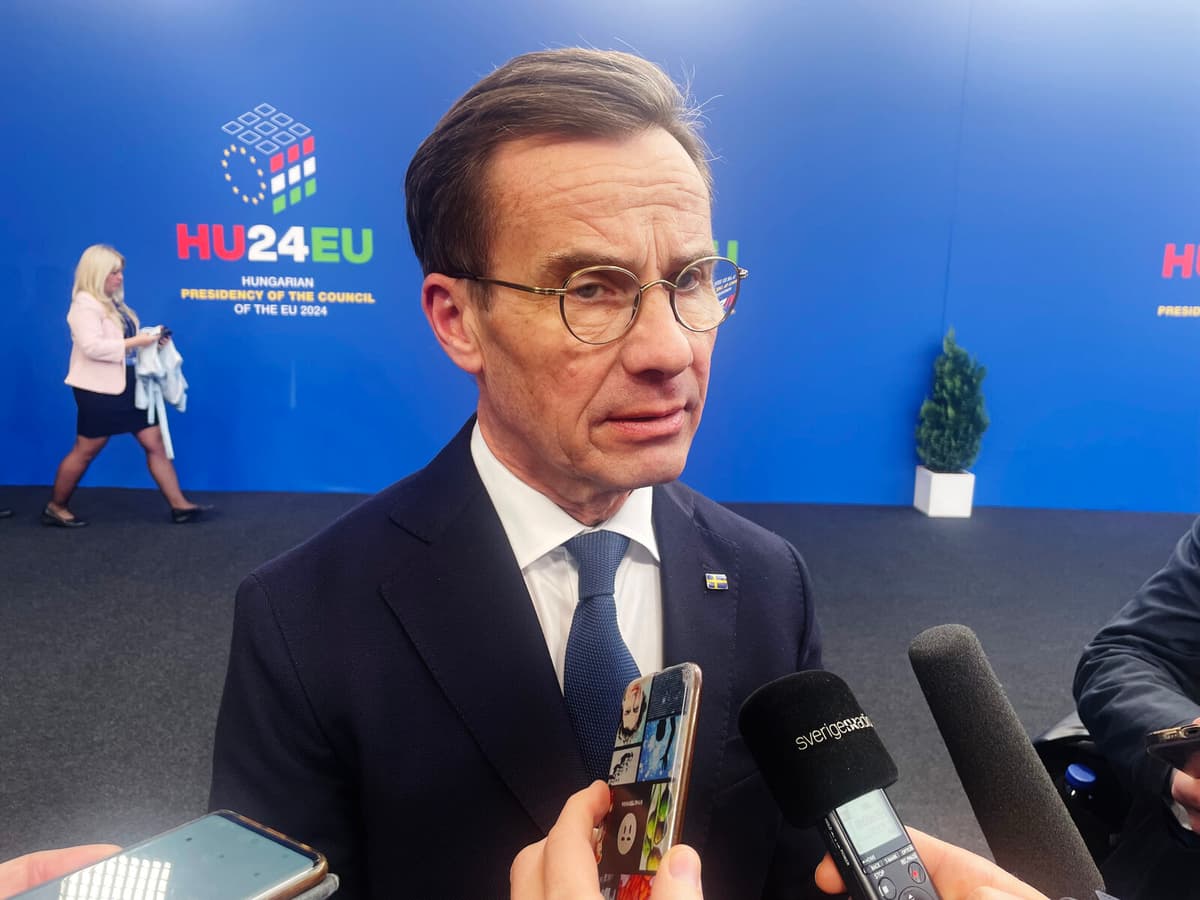The concern is great and the thoughts are many about how the EU can become more competitive in the economy. In a joint statement from Friday's informal summit in Hungary, everything from "deepening" of the internal market and the creation of a capital markets union to concrete proposals to abolish 25 percent of all reporting requirements is discussed.
The urgency is increasing due to Donald Trump's election victory in the USA, with a risk of upcoming trade wars further complicating the economy.
The sense of urgency is greater today than a week ago, emphasizes Mario Draghi himself on his way into the meeting.
"Fallen behind"
The former ECB chief has written a comprehensive report on how the EU can avoid losing ground to Asia and the USA.
There is a growing insight that we cannot continue like this. Europe cannot become a museum of old achievements. Mario Draghi does not mince words. We have fallen behind for a long time, says Prime Minister Ulf Kristersson (The Moderate Party) after the meeting.
He is pleased with what he calls a "strong focus" on necessary reforms, but is aware that they are not easy to implement. At the same time, he is proud that Sweden is being pushed forward as an example in many areas.
Mario Draghi points a lot to the Swedish: to pension reforms, to savings reforms, to the internal market having to work also for services and digital services, says Kristersson.
Among other things, it was noted that Sweden has accounted for significantly more stock exchange listings than Germany, France, the Netherlands, and Spain combined over the past ten years.
We should be proud of that and preferably inspire others to do a bit more like Sweden, says Kristersson.
Dislikes taxes and loans
In their statement from the meeting, the EU leaders give the EU Commission a dozen clear orders for proposals and measures that they want to see already during the first half of 2025. Here, it is also economically discussed about "new own resources" – read EU taxes – something that Sweden dislikes just as much as common borrowing.
The countries that have very high national debt often lean towards someone else paying. But there, the Nordic countries are a good stopgap, believes Kristersson in Budapest.
The EU's heads of state and government agreed on a joint declaration on how to improve competitiveness at Friday's informal summit.
The Budapest Declaration consists of twelve points and a special section on "financing adapted for the future".
Among other things, it calls for regulatory simplifications, increased support for research and innovation, a new industrial strategy, and "rapid progress towards a capital markets union".
Source: European Council.






